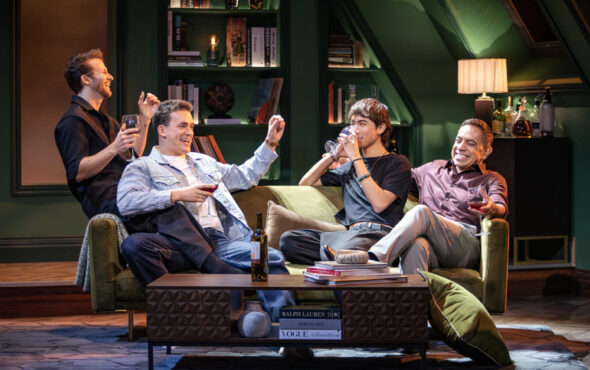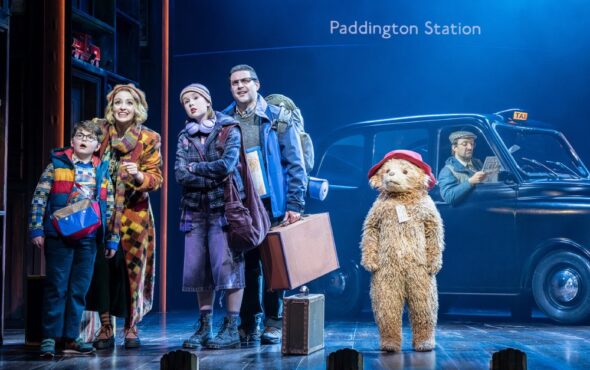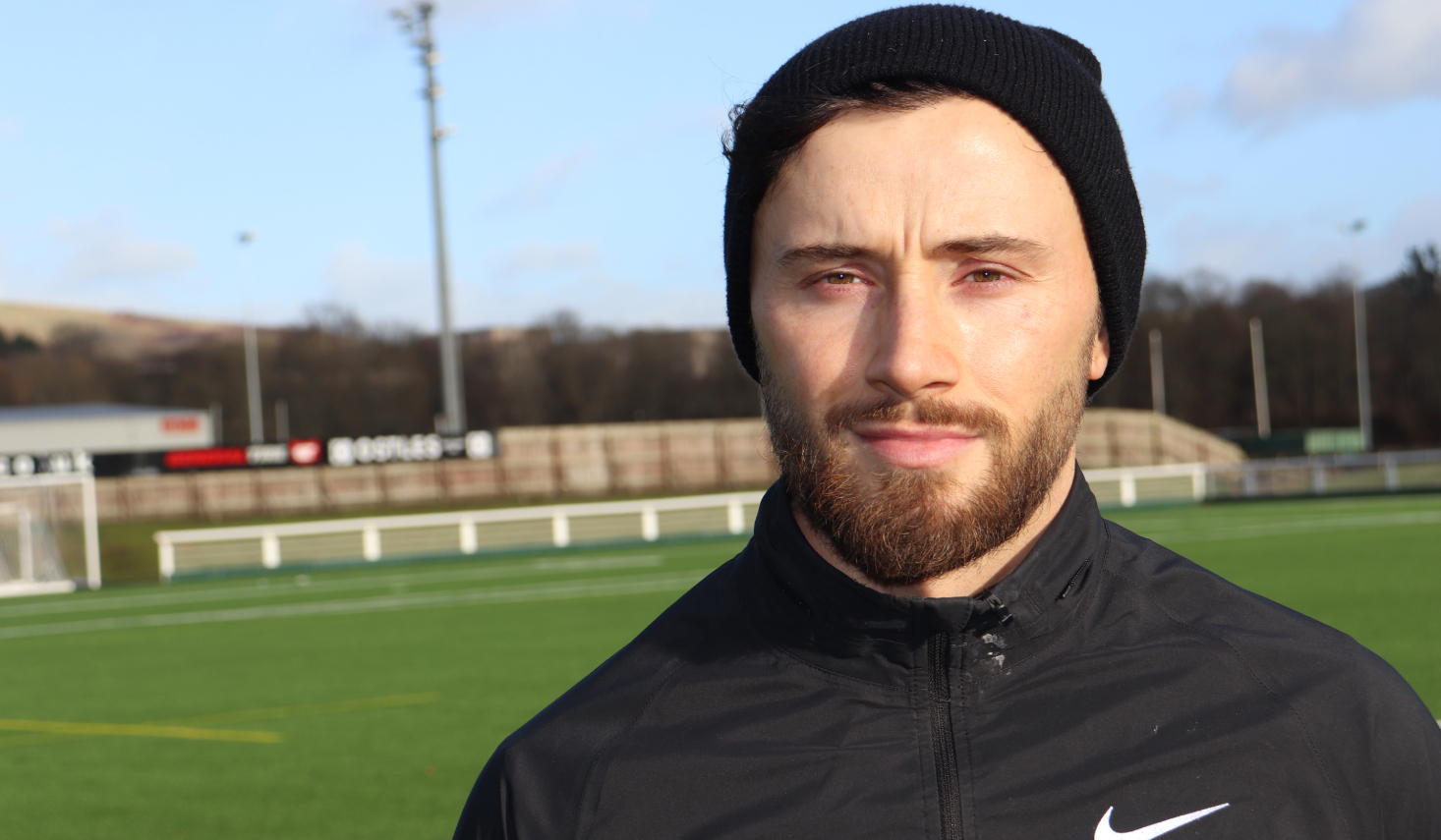
“I hope we can get to a point where it doesn’t make mainstream news and it’s just accepted,” says Zander Murray, who last year became Scotland’s first openly gay senior male footballer, of players coming out as LGBTQ+. Since doing so himself in September 2022, Zander has used his platform to publicly speak out about LGBTQ+ issues and worked with organisations such as Stonewall and Time for Inclusive Education to amplify visibility within the community and beyond. Now, in a new BBC documentary titled Disclosure: Out on the Pitch, the 31-year-old is being more candid than ever before about his path to “fully accepting” himself and what it was like to come out publicly. “The documentary is not all positive and we need to be brutally honest with that and being an out, gay footballer isn’t all positive,” he tells GAY TIMES.
In the documentary, Zander explores whether or not men’s football has a problem with homophobia and what is being done about it. The striker, who plays for Gala Fairydean Rovers, also faces his internalised homophobia head-on and speaks openly about his mental health and getting help when he needs it. “That’s a big thing I always want to convey to anyone who’s a sports person and they’re struggling,” he explains. “You actually need to build up a lot of armour to throw yourself into that world because it can be challenging and you will get horrible people, especially on Twitter, and you may get them at the stadiums or whatnot.” Here, we speak with Zander about the “emotional” documentary and the “strides” he’d still like to see take place when it comes to LGBTQ+ representation in football.
What was the process of making this documentary like for you?
Honestly, I don’t know what my thoughts were before actually starting it – I just didn’t really know what to expect. I thought it might have been a lot of work and tough, but honestly, it was just brilliant and I loved every second of it. All the conversations with the people we met, all the interviews. So it was honestly incredible, I just had no idea what to expect going into it. It was just fantastic – the people we met, all the people in the BBC, producers, filmographers, everyone there was absolutely wonderful and I just hope that translates on the screen.
LGBTQ+ representation in sport continues to be quite scarce, especially in men’s football which you’ve got a lot of experience in. What did making this documentary teach you about homophobia in sport?
I learned a lot, I don’t want to give too much away, but there’s some interesting stats and figures and also, just speaking to out sports people, I’ve learned a lot about what’s actually going on. Obviously my views and how difficult it was for me growing up, I speak in great detail to that. But yes, I’ve learned a hell of a lot and also just about protocols and how to manage it and how to deal with if you do hear homophobic remarks, if it’s from a fan or a player, coaching staff, it’s really good when you’ve been in that realm. I really understand the landscape in Scottish football and obviously a bit of British football as well which, again, only helps.
It’s been a bit six months since you came out publicly and in that time you’ve used your platform to discuss an array of issues affecting LGBTQ+ people and worked with organisations like Stonewall. What has this period of time been like for you?
It’s incredible, it’s just beyond my wildest imagination. Honestly, as I’ve said many times, I sent out a private Facebook post to just tell the football community that I was gay because everyone else knew at that point in September and honestly, overnight, I was just astounded by the love, support, traction, which also highlights still where we’re at. I know there’s only a small minority of us out, gay male players, but it just highlights still where we’re at and it’s just been a steady, steady incline, it just keeps getting better and better and now, here I am, speaking to yourself and have a documentary coming out about my own story and I’m overwhelmed. It’s incredible.
In the last few years we’ve had players like Jake Daniels and Josh Cavallo come out publicly. Did seeing them do this make you feel like it was time for you to share who you are with the world?
Absolutely, absolutely. Of course, the ex-footballers – Robbie Rogers, Thomas Beattie, Antonio Hysén, the list is endless – who I speak and engage with fairly regularly because there’s not that many of us, as you know. And, yeah, Josh Cavallo when he did it overseas, but more importantly, when it was in Britain – young Jake, we’ve had a couple of exchanges and I really hope to meet him one day. Aye, just what an unbelievably brave young man. Obviously, I’m at a different stage to him, he’s eighteen and so that was amazing for football. And I just thought, yeah, now’s the time for me, because obviously I had my background in education and I thought, now’s the time, because actually if it does get traction, which it did, I can now go on and help, which I’m doing, and you can see – I’m not going to give too much away about the documentary – but I go around professional football academies with an LGBTQ+ charity called Time for Inclusive Education and we do really, really empowering workshops. And so, aye, it’s just really hitting all the targets that I wanted to achieve and I’m just so blessed to be in this position. And listen, we’re talking about all the positives here, the documentary is not all positive and we need to be brutally honest with that and being an out, gay footballer isn’t all positive. I know it’s great, but it’s got a lot, a lot of challenges Conor that I do discuss a bit in the documentary.
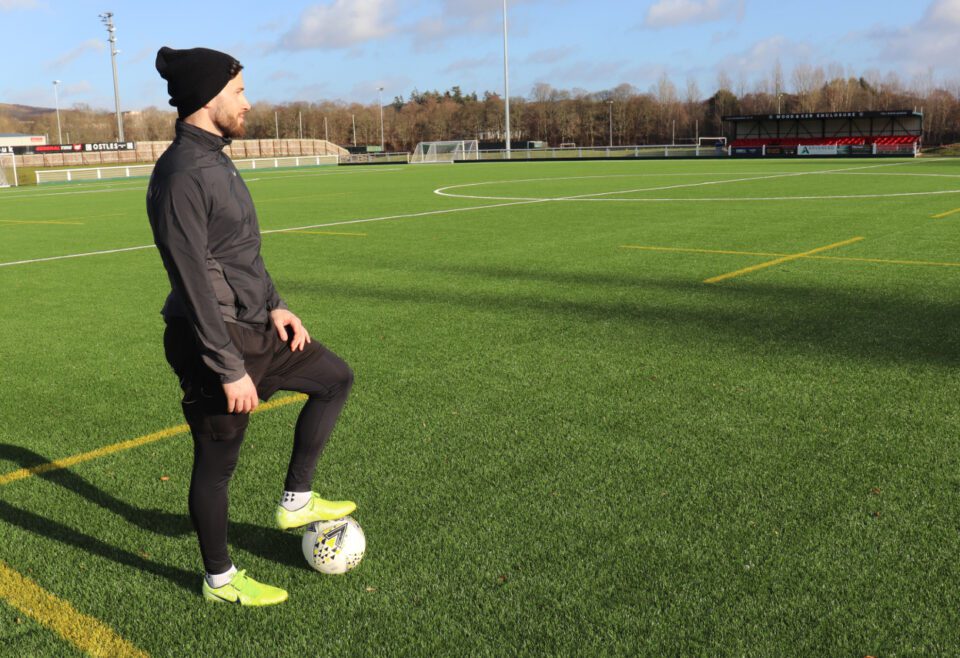
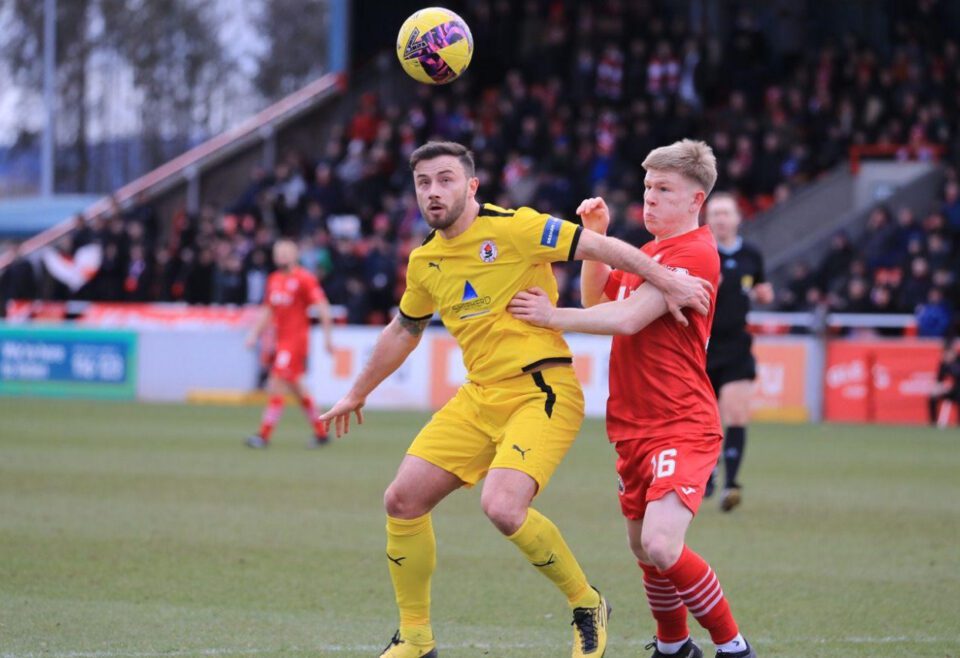
As you touched on there, the LGBTQ+ experience isn’t always a positive one and it’s a very multidimensional thing that varies from person to person. In making the documentary, I’m sure you had to face things that you weren’t expecting to deal with. What was it like to face those things head-on, especially on camera?
It was emotional, which again, I hope translates on the screen. It was very, very emotional. Some of it triggers you or just hits home, some things, or hearing what people are saying who you’re interviewing, because I interviewed people from all different levels, from people from the very top national level, the Scottish Football Association, which is like the FA, all down to – I want to give too much away – but LGBTQ+ sports teams who were talking about their personal stories, I’m getting goosebumps again. Every interview, whatever story they’ve shared, I’m like, ‘I’ve been through that and I can really relate to your struggle’. So many times I welled up and one of the very, very last times was when I got emotional.
When you first came out, you said you previously felt that your career in football couldn’t coexist with your identity as a gay man. Did the last six months and making this documentary change that perception at all?
Yeah, about internalised homophobia and how you live a double life for such a long time, I couldn’t comprehend and I do go into detail a bit about that and then, look at me now, fully accepting myself. I don’t know your journey, Conor, but for myself, coming out was one thing but then accepting myself and being fully open – if I had a boyfriend at the time, walking in the street with him or sitting in a café with my friends talking about RuPaul’s Drag Race, a lot of the times I’d be looking around like, ‘Holy shit, who’s there?’ so I did a lot of work on myself, I’ll be honest, a lot. I have sought support. Counselling, I’ve done a lot of journaling, meditating, you name it. I sought it out, spoke to people, spoke to my ‘Judy’s’ (another RuPaul’s Drag Race quote) and then eventually, you just have that moment that it just all fits and clicks and you’re like, ‘No, I can do this’. That’s a big thing I always want to convey to anyone who’s a sports person and they’re struggling. You actually need to build up a lot of armour to throw yourself into that world because it can be challenging and you will get horrible people, especially on Twitter, and you may get them at the stadiums or whatnot. But if you can handle that, the majority of the time you’re a human being, but by a large, water off a duck’s back! Sorry, another RuPaul’s Drag Race quote. If you can handle that, then jackpot because unfortunately, I know we’re making strides, but let’s be honest, there’s still very horrible people out there which, again, we go into a bit of detail on and I speak honestly about that and what’s been happening in Scottish football in recent times.
It’s great to hear that you’ve used the documentary as a way of highlighting the importance of looking after your mental health, especially given how prominent homophobia continues to be, particularly for those from a more marginalised part of the LGBTQ+ community.
But that’s why I hope that, yes, of course, I hope this documentary hits home for those that are struggling, but also the armchair cis, white, straight male – let’s just be specific here. I hope it hits home on them too, for them to understand and hear that maybe these people aren’t that bad, or maybe everything I’ve been taught or what I’ve been told by my father or whatever religion they’re religious to, actually, look, they’re just normal people. Whatever they get brainwashed with, I don’t know, but I hope that hits home for them. Trans people and drag are under attack, it’s horrendous, and we need to support one another.
Let’s pretend we’re having this conversation in 20 or 30 years time and you’re making another documentary looking back at what has changed since this one. What would you like to see in terms of LGBTQ+ representation both in men’s football and beyond by then?
Great question. I just hope that I can sit down and be like, ‘Wow, I was part of that community at a very, very tough time’. We’re still such a small minority and I hope we get to that point where it doesn’t need to be news and in that dressing room people can just be accepting of themselves and, when someone asks them what they’re doing at the weekend, they can just be open and honest and tell them. [I hope] we can get to a point where it doesn’t make mainstream news and it’s just accepted. And, you know, that the mainstream community and media are understanding of these derogatory remarks that they use that are homophobic – they need to understand the hurt that can do to some people, especially if they’re struggling, and just wipe it out completely. And, not just that, it’s all forms of discrimination, of course. I’ve never really seen someone sharing their full story like this and I’m hoping it can really hit home. What you’re saying in the dressing room and what you’re saying in the stands can have a huge fucking impact, not just on the people on the pitch, but the people around you because there’s LGBTQ+ fan groups and people around you as well. We’re not the majority, we’re a minority and we can’t give up this fight. I hope in 20/30 years time I can sit back and see some strides. I don’t think we’ll ever get to a perfect world because, let’s be honest, you’re always going to get a twat. So, I just want to showcase to someone struggling that there’s people like you out there.
Zander Murray – Out on the Pitch is available to watch now on BBC iPlayer.

